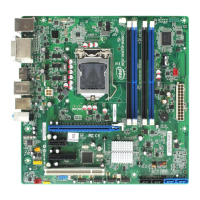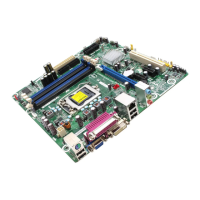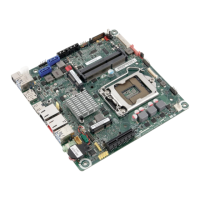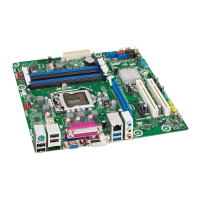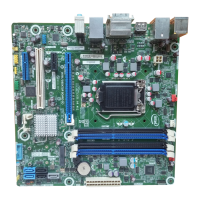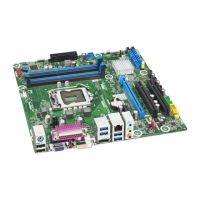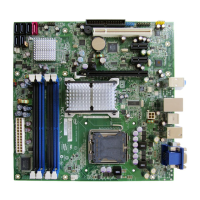Desktop Board Features
27
Trusted Platform Module (TPM)
The Nuvoton* WPCT210 TPM 1.2, revision 103 component on Intel Desktop Board
DQ67OW is designed to enhance platform security above-and-beyond the capabilities
of today’s software by providing a protected space for key operations and other
security critical tasks. Using both hardware and software, the TPM protects encryption
and signature keys at their most vulnerable stages—operations when the keys are
being used unencrypted in plain-text form. The TPM is specifically designed to shield
unencrypted keys and platform authentication information from software-based
attacks.
For information about enabling and activating the TPM, refer to the Trusted Platform
Module (TPM) Quick Reference Guide included with the board.
Fan Speed Control and Hardware Monitoring
The features of the hardware monitoring and fan speed control include:
• Thermal sensors in the processor and the Intel PCH, as well as near the processor
voltage regulators and system memory
• Monitoring of system voltages to detect levels above or below acceptable values
• Thermally monitored closed-loop fan control for all three fans that can adjust fan
speed as needed
• Support for chassis security feature that detects if the chassis cover has been
removed. The security feature uses a mechanical switch on the chassis that can be
connected to the chassis intrusion header on the Desktop Board.
Power Management
Power management is implemented at several levels, including software support
through the Advanced Configuration and Power Interface (ACPI) and the following
hardware support:
• Power connectors
• Fan headers
• LAN wake capabilities
• Instantly Available PC technology (Suspend to RAM)
• +5 V standby power indicator LED
• Wake from USB
• PCI Power Management Event signal (PME#) wakeup support
• PCI Express WAKE# signal support
• Wake from serial devices
• Wake from PS/2

